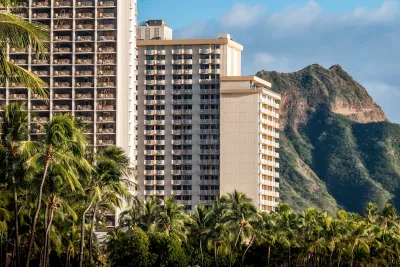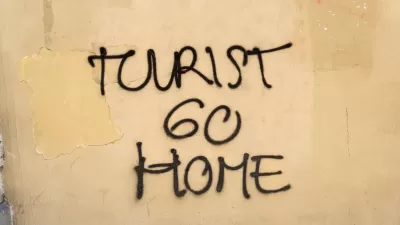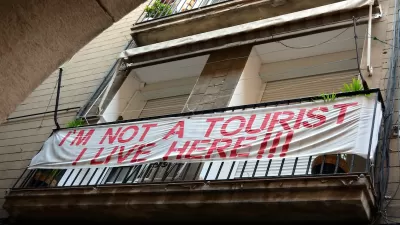The plan would reduce visitor accommodation by 25% resulting in 1,900 jobs lost.

In May, the mayor of Maui made a bold announcement. As part of an ongoing effort to address the chronic housing shortage, exacerbated by the 2023 wildfires, the county would by eliminate more than 7,000 short-term vacation rental units — more than half of the island’s stock — and convert them to long-term housing by January 1, 2026.
While it’s looking unlikely that the county will hit that date, a recent study released by the University of Hawaiʻi Economic Research Organization suggests that the delay might not be the worst thing. Honolulu Civil Beat reports that the study found that such a massive shock to the tourism-dependent economy could have potentially catastrophic consequences.
Erin Nolan reports for the Beat that the massive sudden change to the market would cause a 20-40 percent drop in condo prices in the area. While the increase in housing affordability would be welcome and intended, it would also cause a $60 million drop in property tax revenue for the county.
In addition, the 25 percent drop in visitor accommodation that the change would prompt would cause an estimated $900 million drop in visitor spending and 1,900 jobs to be lost.
The study acknowledged that a bold revisioning of the housing market was important to address, “However, given the scale of the potential economic disruption, careful implementation, monitoring, and flexibility will be essential to maximize benefits while minimizing unintended harm.” Researchers recommended pursuing other alternatives such as new taxes, rental permit auctions and incentives for new development.
Read the Honolulu Civil Beat’s full story, which links to the study, below.
FULL STORY: Study: Maui Should Be Cautious In Phasing Out Vacation Rentals

Trump Administration Could Effectively End Housing Voucher Program
Federal officials are eyeing major cuts to the Section 8 program that helps millions of low-income households pay rent.

Planetizen Federal Action Tracker
A weekly monitor of how Trump’s orders and actions are impacting planners and planning in America.

Ken Jennings Launches Transit Web Series
The Jeopardy champ wants you to ride public transit.

Rebuilding Smarter: How LA County Is Guiding Fire-Ravaged Communities Toward Resilience
Los Angeles County is leading a coordinated effort to help fire-impacted communities rebuild with resilience by providing recovery resources, promoting fire-wise design, and aligning reconstruction with broader sustainability and climate goals.

When Borders Blur: Regional Collaboration in Action
As regional challenges outgrow city boundaries, “When Borders Blur” explores how cross-jurisdictional collaboration can drive smarter, more resilient urban planning, sharing real-world lessons from thriving partnerships across North America.

Philadelphia Is Expanding its Network of Roundabouts
Roundabouts are widely shown to decrease traffic speed, reduce congestion, and improve efficiency.
Urban Design for Planners 1: Software Tools
This six-course series explores essential urban design concepts using open source software and equips planners with the tools they need to participate fully in the urban design process.
Planning for Universal Design
Learn the tools for implementing Universal Design in planning regulations.
Ada County Highway District
Clanton & Associates, Inc.
Jessamine County Fiscal Court
Institute for Housing and Urban Development Studies (IHS)
City of Grandview
Harvard GSD Executive Education
Toledo-Lucas County Plan Commissions
Salt Lake City
NYU Wagner Graduate School of Public Service





























